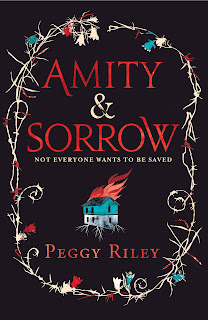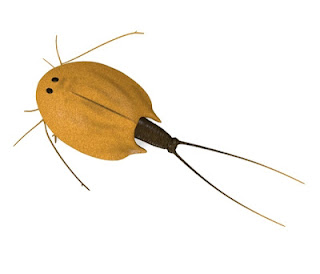Hermaphrodite Mum
Three kids and a single mother
I feel as if I am emerging from a dormant state. I open my eyes wide and I finally exit the kitchen. No more slaving over a hot stove, no more clearing up. The e-cloth is threadbare. Christmas is officially over.
At the same moment, a tiny prehistoric creature emerges from an egg the size of a full stop. It has become the newest member of our household: a Triops! This species of crustacean is blessed with three eyes and has existed for millions of years, just hanging out in ponds. The Triops ancestors shared an ecosystem with Tyrannosaurus Rex and now we have one living in our kitchen in a petri dish.
Middle Child was given a "Terrible Triops" kit for Christmas. Ever since we have been peering into our puddle of Volvic spring water, attempting to spy our tiny vibrating hatchling.
I explain to Middle Child that the Triops is a hermaphrodite. "What's that?" comes the inevitable reply. "It means," I say, picking my words with care, "that she doesn't need a daddy to have babies."
Middle Child pauses for thought. He wipes away a layer of snot laminating his top lip. "So you're like a Triops then," he says, looking me straight in the eye. "You are a herm-afo-dite."
In a manner of speaking, I suppose I am (Errant Husband has taken a sabbatical from parenting). It is also well-known that I have an all-seeing eye at the back of my head. So that's what I am: some kind of human-Triops hybrid.
My eldest comes downstairs - the Quiet One. "What's for supper?" she asks. It is pretty much all she has said today.
"I'm not sure," I reply, "I've only just cleared up lunch." Then in an attempt to distract her, I say: "Look! The Triops has hatched."
Quiet One leans over the dish. "It's a shame it never gets to meet its mum."
"What?" asks Middle Child.
"Read your booklet nim-wim. The adults live for about a month, hatch their eggs and then they die. When the babies hatch, it starts all over again."
Middle Child looks to me for affirmation. "So they never get to meet their mum?" he asks in a trembling voice.
"No, love." Middle Child promptly bursts into tears.
Upstairs there is the echo of a wail. Non-walking Toddler has woken up early from her afternoon nap. I go wearily up to fetch her. Maybe mother Triops was onto something when she cut parenting out of the loop. After all, the species has survived in identical form for more than 200 million years.
Non-walking Toddler stands up in her cot, cheeks flushed and arms akimbo. I pick her up and breath in her warm, yeasty smell. Ah! Maybe there is something to be said for evolution and intensive parenting.
Middle Child appears at the door. "I love you Mama," he says, his face still smudged with tears. I hug them both tight until they shriek.
Downstairs, Quiet One gives an uncharacteristic yell. We all thunder down into the kitchen to discover another hatchling. It is a conundrum - how has this species made it to 2013 without evolving? Middle Child gives his best T-Rex roar to welcome the new arrival.
"Is supper nearly ready?" asks Quiet One, covering her ears.
I sigh and glance round at my four walls. Oh well, I may live in the kitchen, but at least I don't spend my days swimming around a petri dish. Evolution has won me that much.
Hermaphrodite Mum is a fictional creation of Emma Clark Lam






